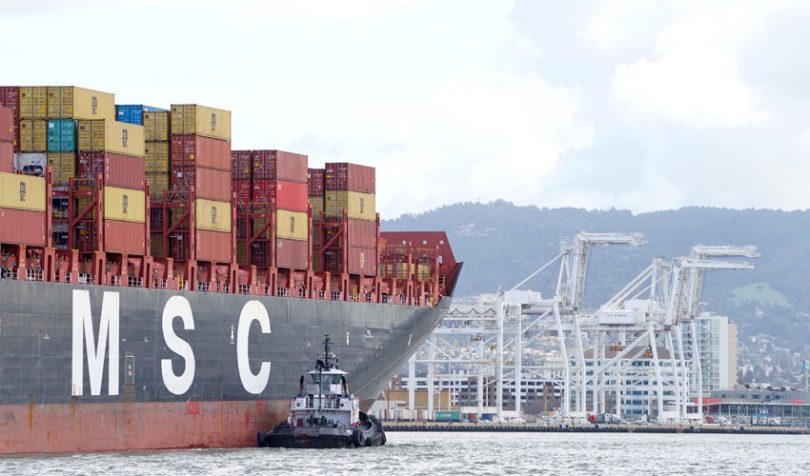TradeLens, the blockchain shipping initiative from Maersk and IBM, involves a collaboration with five of the six largest container shippers in the world. The brands include MSC, CMA-CGM, Hapag-Lloyd and ONE. However, the amended U.S. Shipping Act of 1984 has clauses restricting cooperation between shipping companies.
Any exceptions to the antitrust provisions have to be cleared by the antitrust watchdog, the Federal Maritime Commission (FMC). As highlighted by lawyers Winston & Straw, the FMC has published a Cooperative Working Agreement to which the shippers will sign up and gives them limited exceptions.
It allows the shippers to publish and subscribe to event data on cargo moving through a supply chain, including events associated with documents. Additionally, it covers storing structured and unstructured documents which can be shared with permissioned parties. Finally, it authorizes application programming interfaces (APIs) and user interfaces such as web pages to enable the viewing of event data, milestones, documents, and to manage user permissions.
To be clear, without this permission, technically just discussing how a bill of lading or other documents might be used on the platform was illegal. The agreement becomes effective on February 6th.
But the document expressly bans the discussion of “the vessel capacity to be deployed by any of them” and terms and conditions agreed with customers, including rates and charges. The vessel capacity aspect makes sense because price manipulation can be direct or indirect. Were the supply in the marketplace to be reduced through collusion, that would indirectly impact market prices.
Yet again, this highlights the significant legal hurdles involved in any consortium collaboration. Some might argue that it puts incumbents who can’t afford to flout legislation at a potential disadvantage to startups that adopt an Uber-like approach. Although having to apply for this sort of exception is also a financial barrier to entry for startups.
This agreement is particular to TradeLens. Presumably, if the Global Shipping Business Network (GSBN) is to operate in the U.S. it will also have to apply for an exception.
Additionally, the agreement or antitrust exception is quite narrow in scope. Doubtless, in the future, there will be some “innocent” new applications that sit on top of the TradeLens network that will fall foul of it.






